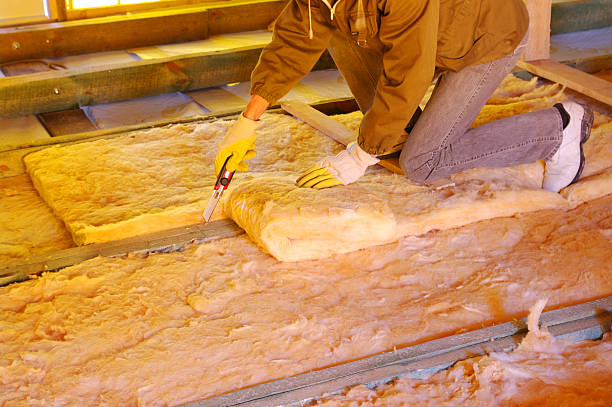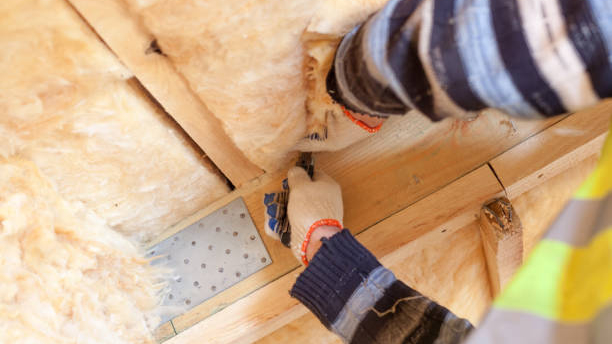Thermal Conductivity of Fiberglass Insulation: Key Facts You Need to Know
Discover the essential facts about the thermal conductivity of insulation fiberglass with FUNAS. Our comprehensive guide delves into the efficiency and benefits of fiberglass insulation, helping you make informed choices for energy-saving solutions. Trust FUNAS for expert insights and superior quality insulation products to enhance your building's thermal performance.
Introduction
What Is the K Value of Fiberglass Insulation?

Is Fiberglass a Good Thermal Conductor?
What Is the Thermal Conductivity of Rockwool Insulation?

What Insulation Has the Best Thermal Conductivity?
-
Aerogel: The material with one of the lowest k-values (0.013 W/m·K), offering exceptional thermal resistance but at a high cost.
-
Polyurethane foam: Often used in spray foam insulation, with a k-value of around 0.02 W/m·K, making it a very efficient thermal insulator.
-
Cellulose insulation: Made from recycled paper products, cellulose has a k-value ranging from 0.035 to 0.045 W/m·K, similar to Rockwool.
Conclusion
FAQs
-
How does fiberglass insulation compare to foam insulation in terms of thermal conductivity?
-
Can fiberglass insulation be used in high-temperature areas?
-
What are the advantages of fiberglass insulation besides its thermal conductivity?
-
How do I choose the best insulation for my home?
-
What factors affect the thermal conductivity of fiberglass insulation?
What insulation do builders use? | FUNAS Guide
What is thermal insulation for cars? | FUNAS Guide
What is the best thermal insulation for walls? | FUNAS Guide
What kind of insulation is used in cars? | FUNAS Guide
What are the different types of insulation in construction? | FUNAS Guide
service
What is your shipping and delivery process like?
We offer reliable logistics services for insulation material wholesale, both domestically and internationally. Our team ensures secure packaging, timely shipping, and real-time tracking so that your order reaches you in perfect condition and on schedule.
Can I request custom dimensions or properties for my insulation needs?
Yes, we specialize in custom solutions. Whether you need specific dimensions, thicknesses, densities, or additional coatings, we can work with you to manufacture insulation products tailored to your exact requirements of good materials for heat insulation.
Are your rubber foam products environmentally friendly?
Yes, our insulation products are designed with sustainability in mind. They help reduce energy consumption by minimizing heat loss and gain, and they are made from durable materials that have a long life cycle, reducing the need for frequent replacement.
FAQ
What is the typical delivery time for custom orders?
Our daily production capacity is 800 cubic meters. Delivery time varies depending on the complexity of the insulation material wholesale order, but we can deliver large quantities of customized products within 4-6 weeks after the approval date, and small quantities can be delivered within 15 days.
What types of rubber foam insulation do you offer?
We offer a wide range of rubber foam insulation with different thicknesses and specifications. Thermal insulation material manufacturer FUNAS sleeves and sheets are suitable for different application scenarios.
You might also like



This product has passed the national GB33372-2020 standard and GB18583-2008 standard. (The product is a yellow liquid.)
Anggu foam phenolic glue is a kind of glue with corrosion resistance, low odor, high strength and excellent brushing property. Can be sprayed for construction with fast surface drying speed, long bonding time, no chalking and convenient operation.

This product has passed the EU REACH non-toxic standard, ROHS non-toxic standard. (The product is black glue.)
Anggu 820glue is a low-odor, high-strength quick-drying glue; Fast drying speed, long bonding time, no powder, non-toxic.
Discover effective strategies for insulating new construction with our comprehensive guide by FUNAS. Learn key techniques and materials to enhance energy efficiency, reduce costs, and ensure comfort in your new building. Dive into expert insights on how to insulate new construction and make informed decisions that promote sustainability and durability. Elevate your construction projects with FUNAS.
Discover the future of energy efficiency with FUNAS's "Top Thermal Insulation Materials List for 2025." Our expertly curated list highlights innovative solutions perfect for your construction and renovation needs. Stay ahead of the curve with cutting-edge insulation technology designed for optimal thermal performance and sustainability. Trust FUNAS for advancements that redefine comfort and efficiency in every project.
Leave a message
Have any questions or concerns about our products? Please leave us a message here and our team will get back to you promptly.
Your queries, ideas, and collaboration opportunities are just a click away. Let’s start a conversation.


















































